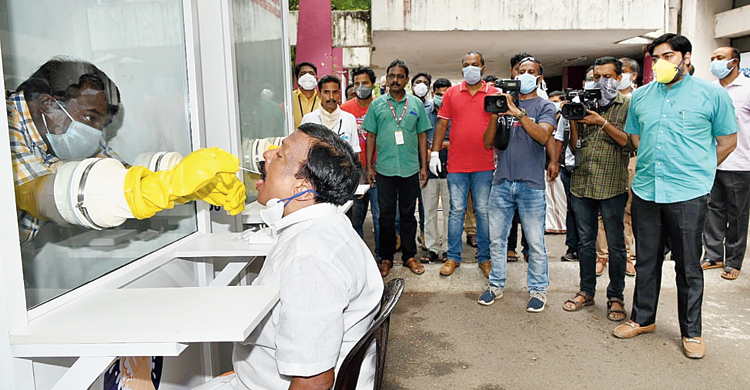In a country already polarized along communal lines, the coronavirus pandemic, it is being argued, has bared other kinds of ailments as well. The glaring apathy towards the plight of the poor and the migrant populations — the constituencies worst affected by the lockdown that has now been extended till early May — as well as mischievous attempts to blame minorities for the spread of Covid-19 bear testimony to a range of twisted sensibilities. Given the grimness of the situation, instances of humane conduct, which testify to human compassion at work, can not only serve as a means to lift the gloom but also set examples for others to follow. Hearteningly, examples of good Samaritans helping fellow citizens in distress have not been rare during this period of crisis. A retired octogenarian college teacher contributed Rs 10,000 towards the chief minister’s relief fund in Bengal; the railways delivered 20 litres of camel milk to a woman in Mumbai after she pleaded for assistance for her autistic child on Twitter; a man in Kerala journeyed for over 150 kilometres in order to deliver medicines to a child suffering from cancer; even the police in Calcutta picked up the microphone to croon a popular song in order to brighten the mood of a besieged population.
Such compassion may be rare in these times, but it serves to bolster the argument that the survival of the human race is dependent, among other things, on kindness. In the middle of a global pandemic, when resources are severely limited, the compassion of fellow humans can be harnessed as a resource to save lives. The survival of solicitude, however, is dependent on replenishing the culture of empathy. This can turn out to be challenging at a time when there are concerted efforts to undermine fellow-feeling in society. The formal curriculum could be looked at as a medium to instil the importance of kindness in young minds. Acts of kindness must also be rewarded. They are, but far too infrequently. However, it must be borne in mind that a meaningful change in human conduct at the time of a contagion is only possible when institutional recognition or rewards is complemented with the awakening of citizens’ innate sense of responsibility and morality.












